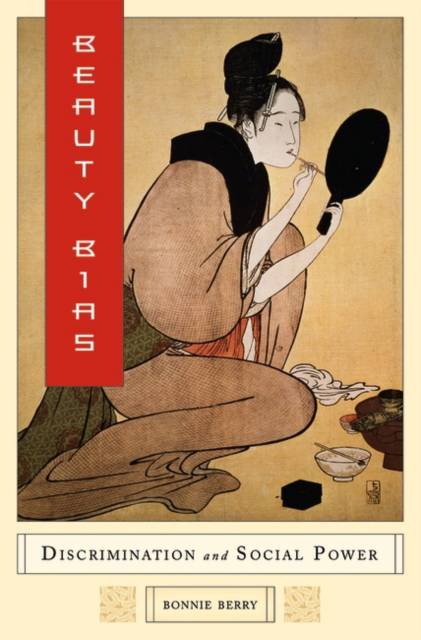
- Retrait gratuit dans votre magasin Club
- 7.000.000 titres dans notre catalogue
- Payer en toute sécurité
- Toujours un magasin près de chez vous
- Retrait gratuit dans votre magasin Club
- 7.000.0000 titres dans notre catalogue
- Payer en toute sécurité
- Toujours un magasin près de chez vous
Description
Society has always been fixated on looks and celebrities, but how we look has deep ramifications for ordinary people too. In this book, Bonnie Berry explains how social inequality pertains to prejudice and discrimination against people based on their physical appearance. This form of inequality overlaps with other, better-known forms of inequality such as those that result from sexism, racism, ageism, and classism. Social inequality regarding looks is notable in a number of settings: work, medical treatment, romance, and marriage, to mention a few. It is experienced as limitations on access to social power. Berry discusses the pressures to be attractive and the methods by which we strive to alter our appearance through plastic surgery, cosmetics, and the like.
Berry also discusses cultural factors, such as the manner in which globalization of media, advertisements, and movies have trended toward homogenization, whereby we are all encouraged to appear tall, thin, white, and with Northern European features even if we are none of those things. She also analyzes the underlying social forces such as economic incentives that, on the one hand, channel us to be as physically acceptable as possible via the sale of diet pills and skin lighteners, and on the other hand, encourage us to accept ourselves as we are by selling us plus-size clothing. The book concludes with suggestions for equal rights extended to all regardless of appearance. Here, Berry describes budding social movements and grassroots endeavors toward an acceptance of looks diversity.Spécifications
Parties prenantes
- Auteur(s) :
- Editeur:
Contenu
- Nombre de pages :
- 176
- Langue:
- Anglais
Caractéristiques
- EAN:
- 9780275990121
- Date de parution :
- 01-08-07
- Format:
- Livre relié
- Format numérique:
- Genaaid
- Dimensions :
- 165 mm x 236 mm
- Poids :
- 430 g

Les avis
Nous publions uniquement les avis qui respectent les conditions requises. Consultez nos conditions pour les avis.






